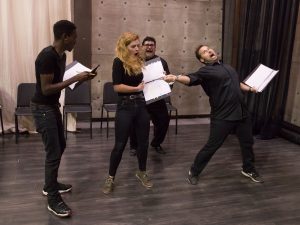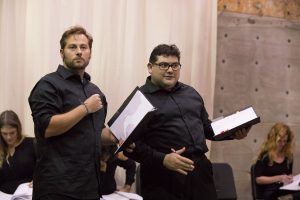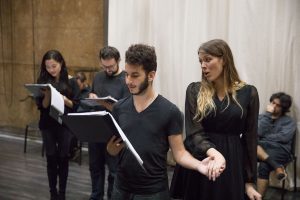UCLA DEPARTMENT OF THEATER PERFORMS STAGED READING OF LOPE DE VEGA’S THE WIDOW OF VALENCIA
On Wednesday, November 8th, MFA students in UCLA’s Department of Theater performed a staged reading of our translation of Lope de Vega’s The Widow of Valencia (La viuda Valenciana). The Widow and her servants, Julia and Urbán, were surrounded by a plethora of suitors, some more bumbling than others, in a comedia both daring and remarkably funny. Following his wonderful direction of A Wild Night in Toledo in 2015 and What We Owe Our Lies in 2016, Professor Michael Hackett once again led a talented cast of young actors, and delighted us (as well as the general public) with what has become the highlight of our year—a most satisfying culmination to our calendar, which begins in January with a new play and ends in the fall with this fruitful cross-campus encounter. With the input and insights of our friends in Theater, we begin each new project with more confidence in our ability to translate for performers and performance. We are grateful to the Arts Initiative Grant and the Center for 17th-and 18th-Century Studies for their support of our partnership.
We thank Michael Hackett and his students for a terrific show!





